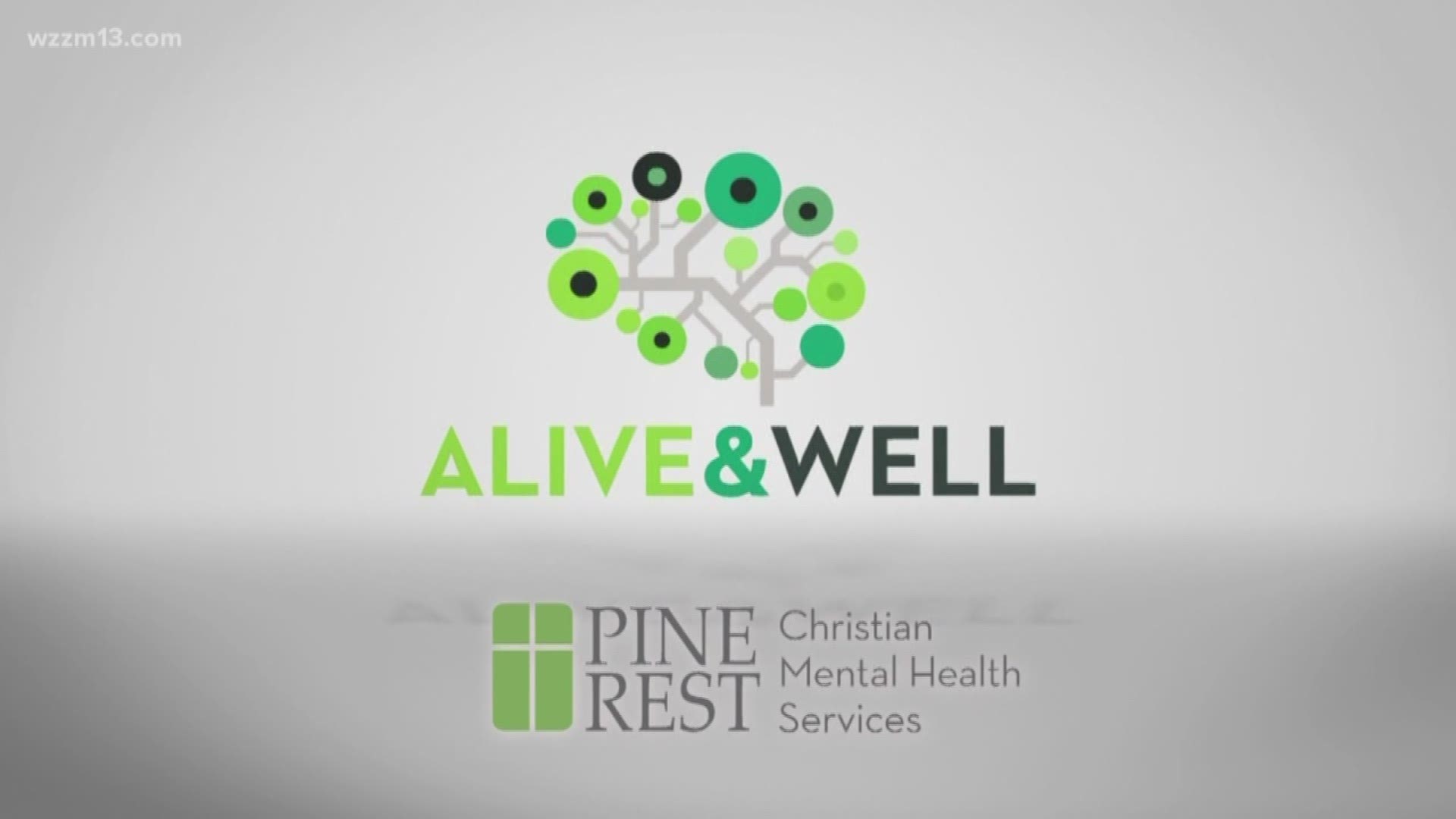According to the U.S. Department of Health and Human Services, In 2016, 2.1 million people had an opioid use disorder and 42,249 (approximately 116 per day) people died from an overdose.
The CDC reported in 2016 that 40 percent of all opioid overdose deaths involve a prescription opioid. Here in Michigan, according to the State Department of Health and Human Services, overdose deaths involving any type of opioid rose from 99 in 1999 to 1,699 in 2016 – 17 times higher!
Statistics like these leave little doubt that our country – and our state – face an opioid epidemic.
The experts at Pine Rest have written the following article to increase understanding about opioid addiction and explain how they can help:
Understanding Opioid Addiction
How the epidemic started
Our present problem with opiates began a couple decades ago when it was decided that people had a right to be pain free. Pain became the fifth vital sign. Although an admirable goal, this quickly became a rallying cry from society, the media and medicine.
Physicians responded by prescribing several new opioid “pain-killers” that were mistakenly felt to be “safe” and not addictive. Slowly it became disturbingly clear—not only was it often not possible to completely eradicate pain, but that aggressively trying might be dangerous. Everyone began to awaken to the fact that opioid pain medications could cause addiction and, in fact, could cause patients to stop breathing.
As prescription opioids became harder and more expensive to get in the U.S., many turned to heroin to manage their pain and their withdrawal symptoms. We have all seen the toll … across the nation, the state, in our communities and perhaps own families. Addiction has become widespread among all ages and incomes, and fatal over doses rose dramatically. In Michigan from 1999 to 2016, overdose deaths involving any type of opioid increased from 99 to 1,699 per year – or more than 17 times higher!
Why are opioids so addictive?
Normally, we feel pleasure when we do the right things in life such as work hard, eat food, drink liquids, exercise and love each other. Since it helps us make life preserving decisions it is very influential. This pleasurable feeling is created by dopamine, a naturally occurring chemical in our brain.
Opioids trigger a flood of dopamine, creating a more intense feeling of pleasure than normal. With repeated use, the pleasure center of the brain is hijacked by the opioids so that normally rewarding activities no longer create a pleasurable feeling. Only more of the opioid produces the desired effect.
Along with the pleasure center, the midbrain contains the amygdala (which is responsible for feelings and emotions) and the hippocampus (important for memories). The pleasure center, amygdala and hippocampus communicate with each other constantly. Negative feeling and powerful memories of “being high” create often unbearable cravings and lead back to use on a regular basis and relapse.
The midbrain does not recognize consequences but becomes a guiding force in the life and behavior of an addict. The thinking and decision-making part of our brain is the prefrontal cortex. This is the “good choices” part of our brain. Brain imaging studies show that in people with addictions the prefrontal cortex is not getting a lot of exercise and is metabolically less active than the midbrain. This explains the often-outlandish behavior of people in active addiction.
Risk factors for opioid addiction
The following factors elevate a person’s risk, although sometimes addiction or substance use disorder occurs without any risk factors present.
- History of problems with other substances such as alcohol
- Genetic predisposed – If a family member had addition to opioids or other substance, it can increase risk
- Mental health diagnosis such as depression, bipolar disorder or anxiety
- History of abuse, neglect or past trauma
- Chronic stress
Why do people switch from prescription opiates to heroin?
As prescription opioids became harder and more expensive to get in the U.S., many turned to heroin to manage their pain, avoid withdrawal symptoms and feel “normal”.
Why do people have a hard time quitting?
Opiates are highly addictive and although the consequences of use can be dire, they can also be very challenging to stop using because:
- The brain’s chemistry becomes altered over time, so a person needs the opioid (or more of the opioid) just to feel “normal."
- Withdrawal symptoms make people very ill. Symptoms include agitation, anxiety, muscle aches, insomnia, runny nose, sweating, yawning, abdominal cramping, diarrhea, dilated pupils, goose bumps, nausea and vomiting.
- Experience intense cravings for the opioids.
How Pine Rest’s can help with the detox process and keep people safe.
Pine Rest Residential Detoxification provides medically monitored assistance in withdrawing from addictive substances like opioids in a warm and welcoming environment to eliminate the risk of relapse. The experienced medical staff includes a multidisciplinary team of physicians, nurses, counselors and care providers who specialize in substance use disorders.
The staff understands those suffering from physical dependency on addictive substances often have emotional and psychological struggles as well. They welcome them with open arms.
Additional treatment options at Pine Rest for patients and family.
- Short-term residential
- Medication-assisted treatment (MAT)
- Intensive outpatient program
- Individual and group therapy
- Relapse prevention
- Family therapy
- Family Recovery Group
For help determining appropriate level of care or details about any addiction service in our continuum, please call 866-852-4001. More information is also available at pinerest.org/addiction.
►Make it easy to keep up to date with more stories like this. Download the WZZM 13 app now.
If you would like more information about advertising with WZZM 13, please contact Jeff Olsen at jolsen@wzzm13.com.

